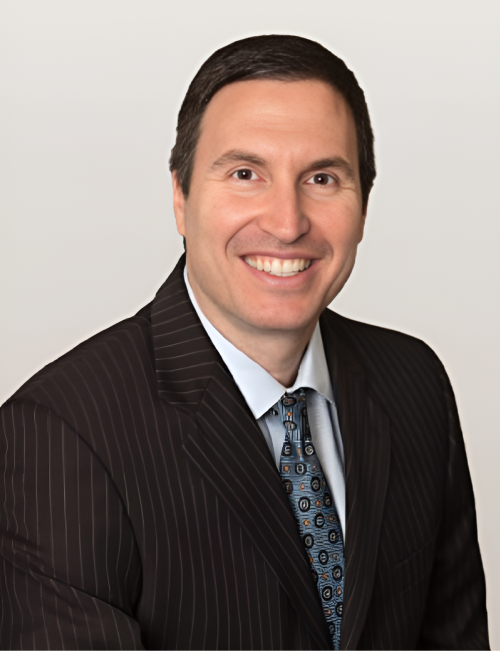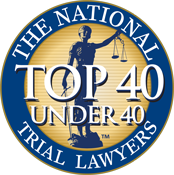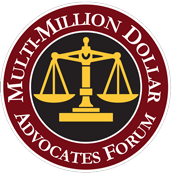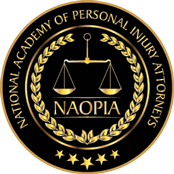Accidents can happen to anyone, anywhere, and at any time. When you are on someone else's property, whether it's a shopping mall or a friend's house, you have the right to expect a safe environment. Unfortunately, this is not always the case. If you have been injured due to dangerous conditions on another person's property, premises liability claims become important.
Premises liability claims hold property owners accountable for their negligence in maintaining safe premises. These claims ensure that if someone is injured as a result of hazardous conditions on someone else's property, they have the legal right to seek compensation for their injuries and related expenses.
By understanding premises liability claims and your rights as an individual injured on someone else's property, you can take crucial steps toward holding negligent parties responsible and receiving the compensation you deserve. It is essential to care about premises liability claims because they protect your well-being while ensuring accountability from those responsible for maintaining safe environments.
What Constitutes a "Premises Liability" Claim in Florida?
Premises liability refers to the legal responsibility of property owners to ensure the safety of individuals who enter their premises. In Florida, a premises liability claim can arise when someone is injured due to dangerous conditions on someone else's property. This includes slip and fall accidents, inadequate security leading to assault or theft, poorly maintained structures causing injuries, and other hazardous situations.
To establish a premises liability claim in Florida, you must prove that the property owner was negligent in maintaining their premises. This requires demonstrating that they knew or should have known about the dangerous condition but failed to address it within a reasonable timeframe. Additionally, you need evidence showing that this negligence directly caused your injury.
It's important to note that not all injuries occurring on another person's property automatically lead to a successful premises liability claim. The key factor is whether the property owner acted negligently in allowing or creating unsafe conditions.
How Do I Prove That a Property Owner Was Negligent in Maintaining Their Premises?
Proving negligence on the part of a property owner in maintaining their premises is crucial for a successful premises liability claim. To establish negligence, you need to show that the property owner had a duty of care to maintain their property safely and that they breached this duty.
You must demonstrate that there was an existing hazard or dangerous condition on the premises. This can include slippery floors, broken stairs, inadequate security measures, or even faulty electrical wiring. It's important to gather evidence, such as photographs, videos, or witness statements, to support your claim.
You need to show that the property owner knew or should have known about the hazardous condition but failed to take appropriate action to fix or warn visitors about it. This can be proven through inspection reports, maintenance records, and complaints from other individuals who experienced similar issues at the location.
Can I File a Claim if I Was Injured at a Commercial Establishment Like a Mall or Restaurant?
If you sustain an injury at a commercial establishment like a mall or restaurant, you may wonder if you can file a claim for premises liability. The answer is yes. You can pursue a claim in such cases. Commercial property owners have a legal duty to maintain their premises safely for visitors. If they fail to do so and it results in your injury, you may have grounds for a premises liability claim.
To successfully prove negligence on the part of the property owner, you will need to establish that they breached their duty of care. This could include showing that they knew about the dangerous condition but failed to remedy it or warn visitors. Additionally, proving that your injury was directly caused by this negligent act is crucial.
What Is the Statute of Limitations for Premises Liability Claims in Florida?
Premises liability claims in Florida are subject to a statute of limitations, the time frame within which a lawsuit must be filed. In Florida, the statute of limitations for premises liability claims is generally two years from the date of injury. This means that if you have been injured on someone else's property due to their negligence, you have two years from the incident date to file a claim.
It is important to note that there may be exceptions and variations depending on the specific circumstances surrounding your case. For example, different rules and deadlines may apply if your claim involves injuries caused by a government entity or public property. It is crucial to consult with an experienced premises liability attorney who can guide you through this process and ensure that all necessary deadlines are met.
If I Was Partially at Fault for My Injury, Can I Still Pursue a Premises Liability Claim?
In premises liability cases, comparative negligence comes into play when determining fault and liability. Comparative negligence means that if you were partially responsible for your injury, it may affect the compensation you can recover. However, it doesn't necessarily mean you cannot pursue a claim.
Florida follows a comparative negligence rule, which means that even if you were 50% or more at fault for your injury, you will likely be unable to seek compensation. If you were not the party with the higher fault then your damages will be reduced by your own fault. For example, if the court determines that you were 30% responsible and the property owner was 70% responsible for your injuries, you may recover 70% of any damages awarded.
Are Landlords Always Responsible for Injuries That Occur on Their Rental Properties?
Landlords play a crucial role in ensuring the safety of their tenants and visitors. However, they are not always automatically responsible for injuries on their rental properties. Whether or not a landlord is held liable depends on several factors.
Landlords must maintain their premises and address any known hazards. If they fail to do so and someone gets injured, the landlord may be considered negligent. This could include a landlord failing to fix broken stairs, repair faulty wiring, or address other dangerous conditions.
It is important to consider whether the tenant or visitor was legally allowed on the property at the time of the injury. If someone trespassed onto the property without permission or engaged in illegal activities that led to their injury, it may diminish or eliminate the landlord's responsibility.
How Does Florida's Comparative Negligence Rule Affect My Premises Liability Claim?
Florida's comparative negligence rule is an important factor to consider when pursuing a premises liability claim. This rule allows for the allocation of fault between the injured party and the property owner or occupier. In other words, if you are found partially at fault for your injury, your compensation may be reduced by the percentage of fault assigned to you.
For example, if it is determined that you were 20% responsible for your accident and the property owner was 80% responsible, any damages awarded to you would be reduced by 20%. This means that even if you are partially at fault, you may still be able to recover some compensation.
It's important to note that Florida follows a modified comparative negligence standard. Like many states, this means that being 50% at fault or more can bar recovery entirely.
What Types of Damages Can I Recover in a Premises Liability Lawsuit?
In a premises liability lawsuit, if you have been injured on someone else's property due to their negligence, you may be entitled to recover various damages. These damages are designed to compensate you for the physical, emotional, and financial losses you have suffered due to your injuries.
You can seek compensation for medical expenses related to your injury. This includes costs such as hospital bills, doctor visits, medication fees, rehabilitation expenses, and any future medical treatments that may be necessary.
You may be able to recover lost wages or income if your injury has caused you to miss work or rendered you unable to perform your job duties. This also applies if your earning capacity has been reduced due to the accident.
Last but not least important is pain and suffering damages. These are meant to compensate for the physical pain and emotional distress from the accident. While these damages can be more difficult to quantify than economic losses such as medical bills or lost wages since they are subjective, they play an essential role in compensating victims fairly.
Can I File a Claim Against a Government Entity if I Was Injured on Public Property?
If you were injured on public property and the responsible party is a government entity, you may wonder if you can file a claim. The answer is yes. It is possible to file a claim against a government entity for injuries sustained on public property. However, it's important to note that bringing a lawsuit against the government can be more complex than filing a claim against an individual or private business.
When pursuing a premises liability claim against a government entity in Florida, certain rules and procedures must be followed. For example, there are strict deadlines for notifying the appropriate governmental agency of your intent to sue. Additionally, there may be limitations on the amount of compensation you can recover.
To navigate these complexities successfully and increase your chances of obtaining fair compensation for your injuries, consulting with an experienced premises liability attorney with specific experience in cases involving government entities is crucial. They will guide you through the legal process and help protect your rights every step of the way.
What Evidence Should I Gather After an Injury on Someone Else's Property?
After sustaining an injury on someone else's property, gathering the necessary evidence to support your premises liability claim is crucial. Start by documenting the accident scene thoroughly. Take photographs or videos of any hazardous conditions that contributed to your injury, such as wet floors, broken stairs, or inadequate lighting.
Next, obtain contact information from any witnesses present during the incident. Their testimonies can help strengthen your case and establish negligence on the part of the property owner. Collect their names, phone numbers, and addresses for future reference.
Additionally, keep a detailed record of all medical treatment you receive after the accident. This includes doctor visits, hospital stays, prescription medications taken, and any physical therapy sessions attended. These documents provide essential proof of your injuries and can contribute significantly to determining fair compensation in your premises liability claim.
How Do "Attractive Nuisance" Laws in Florida Affect Premises Liability Cases Involving Children?
When it comes to premises liability cases involving children, one important factor to consider is the concept of "attractive nuisance" laws in Florida. These laws are designed to protect children who may be injured on someone else's property due to an attractive or dangerous condition.
Under these laws, property owners must take reasonable steps to prevent harm to children who things like swimming pools, trampolines, or construction sites may attract. If a child trespasses onto their property and suffers an injury, the property owner may still be held liable if they fail to take proper precautions.
To determine liability in attractive nuisance cases, courts typically consider factors such as the age and intelligence of the child involved, the likelihood that they would enter the property without permission, and whether the property owner took steps to eliminate or reduce potential hazards.
If I Was Injured at a Friend's House, Will Filing a Claim Directly Affect Them or Their Insurance?
If you've been injured at a friend's house, you might hesitate to file a claim for fear of straining your relationship. However, it's important to understand that filing a premises liability claim will typically not directly affect your friend or their insurance.
When you file a claim, it is usually against the homeowner's insurance policy rather than directly targeting your friend. Homeowner's insurance is specifically designed to cover accidents and injuries on the insured property. Your friend's insurer will handle the claim and potentially provide compensation for your medical expenses, lost wages, and pain and suffering.
It is also worth noting that most homeowner's insurance policies have liability coverage limits. If your damages exceed these limits, additional legal steps may be required to seek compensation beyond what the policy covers. Filing a claim should not impact your friendship as long as you approach the situation respectfully and communicate openly with each other throughout the process.
What Role Do Building Codes Play in Determining Negligence in a Premises Liability Case?
Building codes play a crucial role in determining negligence in premises liability cases. Local governments establish these codes and outline specific requirements for the construction, maintenance, and safety of buildings. When it comes to premises liability claims, building codes serve as a standard by which property owners' actions or lack thereof can be evaluated.
If a property owner fails to comply with relevant building codes, it may be considered evidence of negligence. For example, if someone is injured due to a poorly maintained staircase that does not meet code requirements for handrails or lighting, the property owner may be liable for their injuries.
Building codes provide guidelines on various aspects of a property's safety, including electrical wiring, fire prevention measures, accessibility features for people with disabilities, and more. By adhering to these codes and ensuring their properties meet the required standards, property owners can greatly reduce the risk of accidents on their premises.
Can I Pursue a Claim if I Was Injured Due to Inadequate Security on a Property?
If you were injured due to inadequate security on a property, you may be able to pursue a premises liability claim. Inadequate security refers to situations where the property owner or manager fails to provide reasonable measures to prevent criminal activity or harm on their premises. This can include a lack of proper lighting, broken locks or gates, and insufficient surveillance systems.
To successfully pursue a claim for inadequate security, you will need to prove that the property owner was negligent in maintaining the safety of their premises. This can be done by gathering evidence such as police reports, witness statements, and photographs of unsafe conditions. It's important to consult with an experienced personal injury attorney who can guide you through the legal process and help gather the necessary evidence for your case.
Hire an Experienced Frankl Kominsky Injury Lawyers - Premises Liability Lawyer Serving Okeechobee
In the unfortunate event that you or a loved one has been injured on someone else's property, it is crucial to understand your rights and options when it comes to premises liability claims. These types of cases can be complex, but with the help of an experienced attorney, you can navigate through the legal process and seek the compensation you deserve.
At Frankl Kominsky Injury Lawyers, we have experience in premises liability cases and are dedicated to providing exceptional legal representation to our clients in Okeechobee and throughout Florida. Our team of skilled attorneys deeply understands Florida's laws surrounding premises liability claims, and we will fight tirelessly on your behalf to ensure your rights are protected.
To discuss your premises liability claim with an experienced lawyer who understands what you're going through, call Frankl Kominsky Injury Lawyers today at 561-800-8000. We offer free consultations so that we can evaluate your case thoroughly and provide guidance based on our expertise. Don't wait - let us help you get started on the path towards justice today!

Steven L. Frankl
Steven L. Frankl represents clients in cases of catastrophic injury, wrongful death, motor vehicle accidents, trucking accidents, medical malpractice, and product liability, as well as slip/trip fall accidents and nursing home neglect. Mr. Frankl’s practice is built on the pursuit of justice and fair compensation for his clients.





